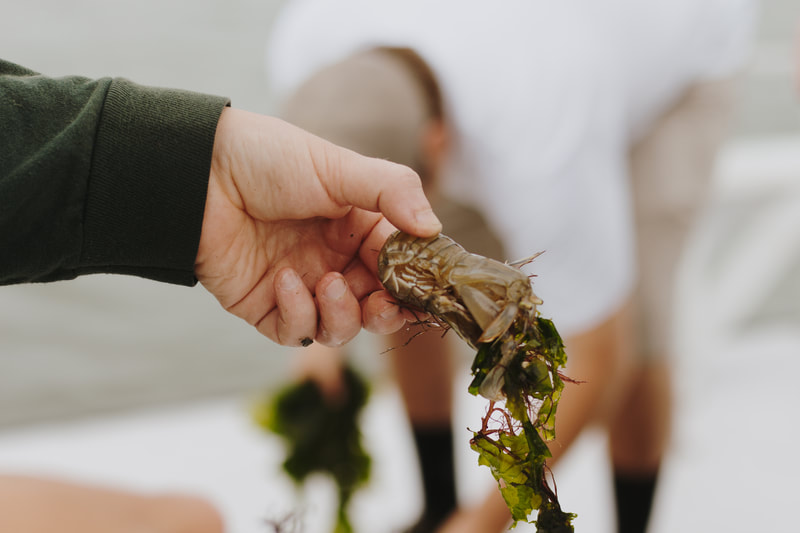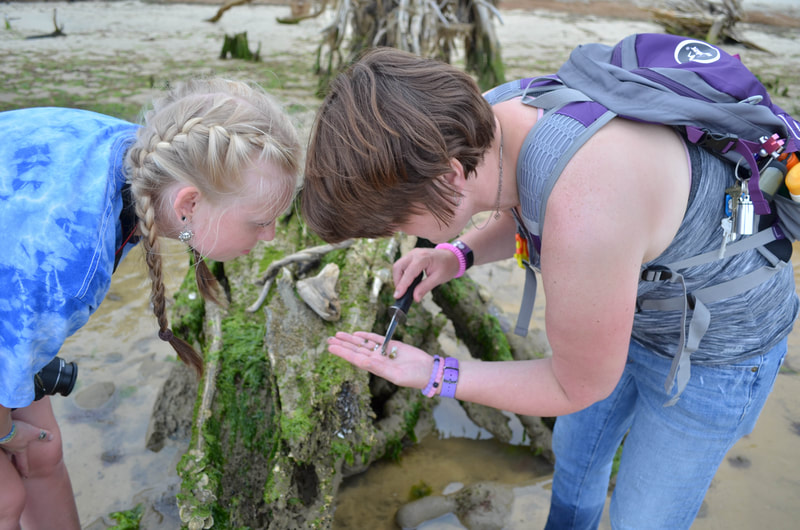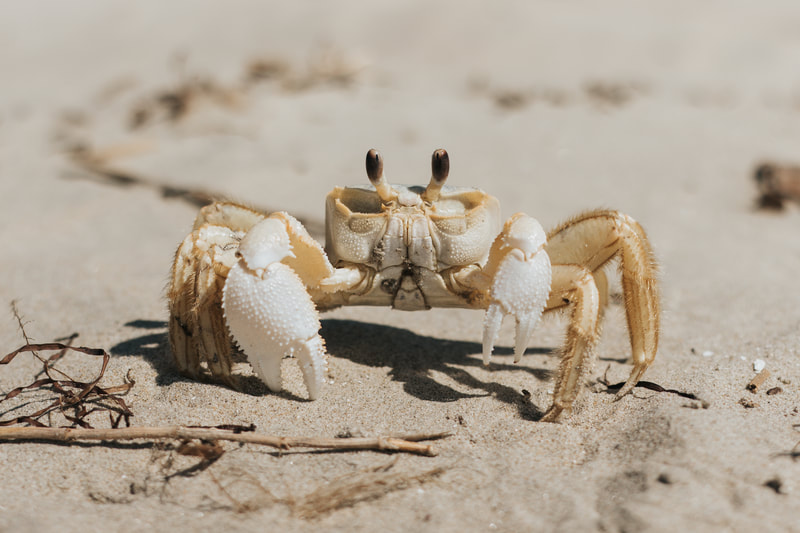INVERTEBRATE ZOOLOGY- BIO 387
DR. ANNE BOETTGER - WEST CHESTER UNIVERSITY
Course Description:
Invertebrate Zoology is a study of the biodiversity of animals without a backbone. Animals in this grouping come in a bewildering diversity of forms, functions and pursue an amazing breadth of life styles. This course will therefore investigate the biology specifically of the marine invertebrates, an enormously disparate group of organisms displaying that vast array of morphologies, physiologies, and life histories. It will emphasize common features among different groups of invertebrates paying particular attention to physiology, development, grades of construction, ecology, systematics and behavior. Besides the traditional laboratory and lecture format, students will participate in field and collection trips and learn about culture approaches to some of the more economically or ecologically valuable species of invertebrates.
Marketable Skills Gained from This Course:
General Description of Field Activities:
Field Activities will include trips to the following environments:
Prerequisites:
None
Required Textbook or Supplies:
A Field Guide to the Atlantic Seashore: From the Bay of Fundy to Cape Hatteras (Peterson Field Guides) by KL Gosner (Author, Illustrator), RT Peterson (Editor). ISBN-10#: 061800209X
OR
Atlantic Seashore Field Guide: Florida to Canada. J. Duane Sept. Stackpole Books. ISBN-10: 0811714217
Background Text: J.A. Pechenik. 2005. Biology of the Invertebrates. McGraw-Hill Publishing. ISBN#: 0072348992 (not required)
Number of Students:
14
2024 Chincoteague Bay Field Station Fee*:
3 week course; housing and meals included
Salicornia; $1,794
Traditional; $1,644
Fees are subject to change at the discretion of the board of directors
* Does not include university tuition or fees. For specific policy on CBFS fees, click HERE.
Invertebrate Zoology is a study of the biodiversity of animals without a backbone. Animals in this grouping come in a bewildering diversity of forms, functions and pursue an amazing breadth of life styles. This course will therefore investigate the biology specifically of the marine invertebrates, an enormously disparate group of organisms displaying that vast array of morphologies, physiologies, and life histories. It will emphasize common features among different groups of invertebrates paying particular attention to physiology, development, grades of construction, ecology, systematics and behavior. Besides the traditional laboratory and lecture format, students will participate in field and collection trips and learn about culture approaches to some of the more economically or ecologically valuable species of invertebrates.
Marketable Skills Gained from This Course:
- Invertebrate identification in conjunction to relating morphological adaptations to the environment in which a given animal may thrive
- Wildlife management, since invertebrates serve as food sources to many vertebrates and their numbers can therefore aid in management approaches
- Training in invasive species identification and management
- Aqua or Mariculture production including larval rearing of cultured invertebrate organisms and their food sources and multi-species cultivation and techniques
- Techniques for collection, maintenance and storage of invertebrates for live specimen maintenance and zoological collections
- Microscopy skills for more in depth analyses of morphological features
General Description of Field Activities:
Field Activities will include trips to the following environments:
- Sandy and muddy environments, i.e. Wallops Island Beach (sheltered, sandy), Tom’s Cove (muddy, sheltered) and Assateague Beach (sandy, exposed) for collection of burying invertebrates, including bivalves and polychaetes.
- Rocky environments such as those found in Veteran’s Memorial Park, Chincoteague (sheltered) and Indian River Inlet, Ocean City Maryland (exposed, high currents) will provide habitats for species displaying capabilities of attachment including poriferans, anthozoans, barnacles, echinoderms and ascidians.
- Saltmarshes such as those found in Assateague State Park and the Chincoteague National Wildlife Refuge will introduce students to burrying invertebrates which are capable of surviving with limited oxygen, free living invertebrates including fiddler crabs and species using temporary attachment such as polyplacophorans and gastropods.
- In addition, boat trips will allow the class to collect benthic, including crustaceans, mollusks and echinoderms, and planktonic invertebrates, including cnidarians, ctenophores, crustaceans as well as larval invertebrates.
Prerequisites:
None
Required Textbook or Supplies:
A Field Guide to the Atlantic Seashore: From the Bay of Fundy to Cape Hatteras (Peterson Field Guides) by KL Gosner (Author, Illustrator), RT Peterson (Editor). ISBN-10#: 061800209X
OR
Atlantic Seashore Field Guide: Florida to Canada. J. Duane Sept. Stackpole Books. ISBN-10: 0811714217
Background Text: J.A. Pechenik. 2005. Biology of the Invertebrates. McGraw-Hill Publishing. ISBN#: 0072348992 (not required)
Number of Students:
14
2024 Chincoteague Bay Field Station Fee*:
3 week course; housing and meals included
Salicornia; $1,794
Traditional; $1,644
Fees are subject to change at the discretion of the board of directors
* Does not include university tuition or fees. For specific policy on CBFS fees, click HERE.




